I’m thrilled to share my knowledge on growing these delightful legumes. Peanuts are not only nutritious but also rewarding to cultivate. Let’s dive into the exciting world of peanut growing!
Why Grow Peanuts?
Peanuts are versatile, protein-packed powerhouses that thrive in warm climates. Growing your own means you’ll enjoy fresh, flavorful nuts while experiencing the joy of nurturing a plant from seed to harvest.
Choosing the Right Variety
Select a peanut variety suited to your climate:
- Virginia peanuts: Large nuts, ideal for roasting
- Spanish peanuts: Smaller, great for snacking
- Valencia peanuts: Sweet, perfect for boiling
- Runner peanuts: Uniform size, excellent for peanut butter
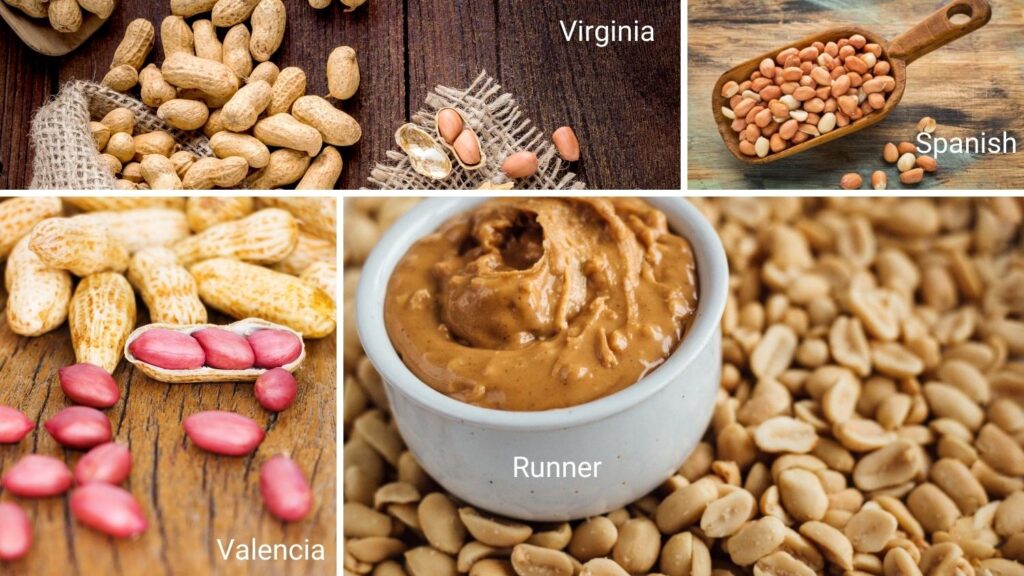
Preparing Your Garden
Peanuts love well-drained, sandy soil. Here’s how to prepare:
- Choose a sunny spot
- Loosen soil to 12 inches deep
- Remove rocks and debris
- Add organic matter for nutrients
- Ensure soil pH is between 5.8-6.2
Planting Your Peanuts
Timing is crucial. Plant after the last frost when soil temperatures reach 60-70°F (15-21°C).
- Shell raw peanuts gently
- Plant 1-2 inches deep, 4-6 inches apart
- Space rows 2-3 feet apart
- Water thoroughly after planting
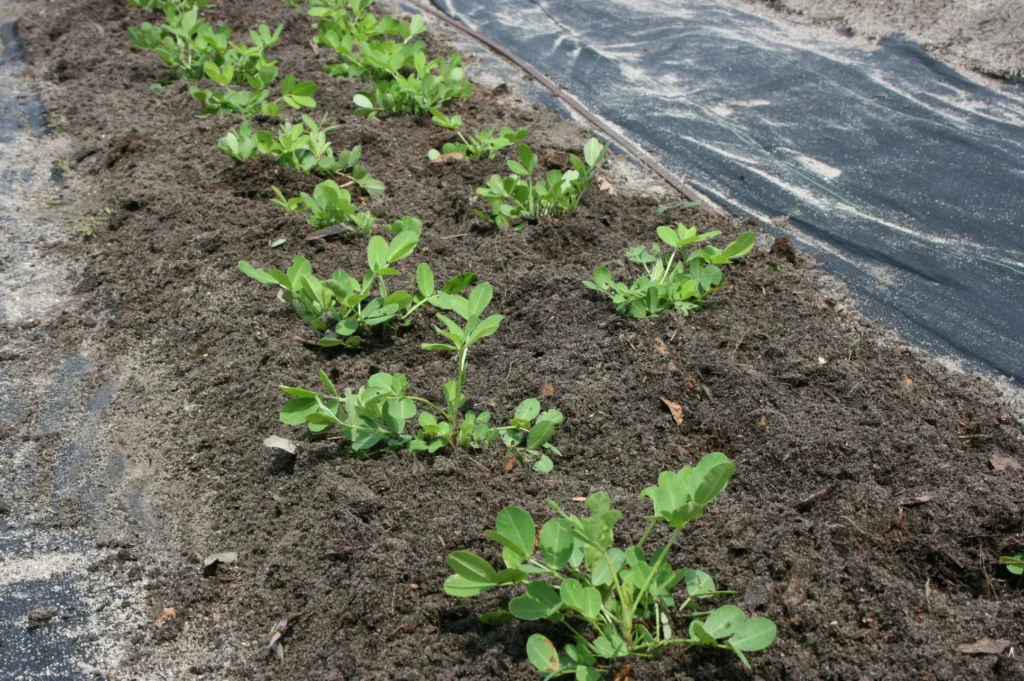
Caring for Your Peanut Plants
Peanuts require attention and care:
- Water regularly, keeping soil moist but not waterlogged
- Mulch to retain moisture and suppress weeds
- Fertilize with low-nitrogen, high-phosphorus fertilizer
- Hill soil around plants as they grow

Peanut Plant Growth Stages
Watch your plants progress through these stages:
- Germination (7-14 days)
- Vegetative growth (25-40 days)
- Flowering (30-40 days)
- Peg formation and pod development (60-80 days)
- Kernel fill and maturity (60-80 days)
Harvesting Your Peanuts
Harvest time is the most exciting part! Here’s how:
- Check plants for yellowing leaves (110-130 days after planting)
- Gently dig up a plant to inspect pods
- If pods are dark inside with visible veins, they’re ready
- Loosen soil and pull up plants
- Shake off excess soil and hang to dry
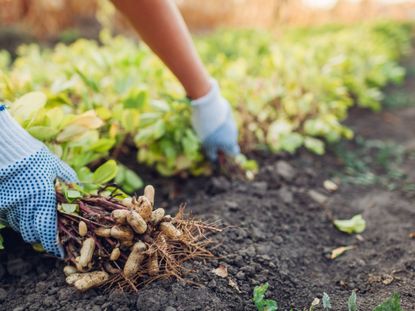
Processing and Storing
Proper processing ensures delicious peanuts:
- Cure peanuts for 1-2 weeks in a warm, dry place
- Remove pods from plants
- Store raw peanuts in a cool, dry place for up to 3 months
- Roast peanuts for longer storage and enhanced flavor
Troubleshooting Common Issues
Stay vigilant for these potential problems:
- Leaf spot: Remove affected leaves, improve air circulation
- Root rot: Ensure proper drainage, avoid overwatering
- Pests: Monitor for aphids, thrips, and nematodes
- Nutrient deficiencies: Address with appropriate fertilizers
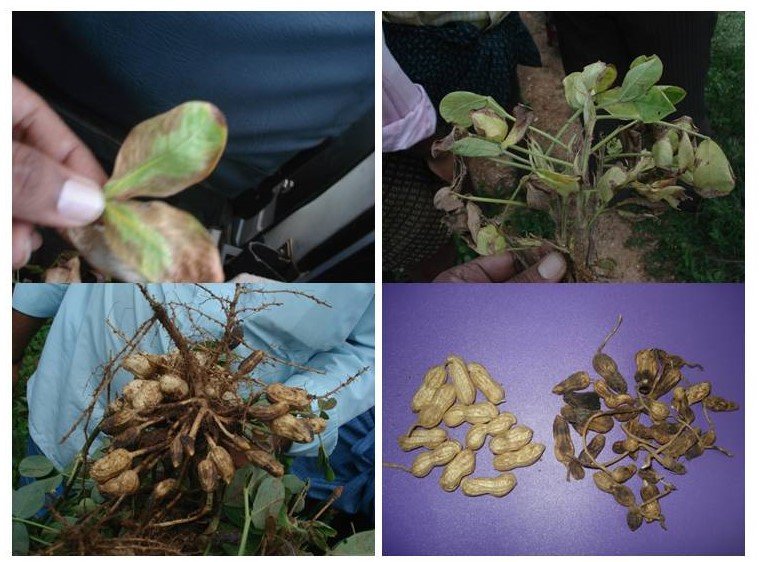
Peanut Growing Tips from My Experience
Over the years, I’ve learned valuable lessons:
- Patience is key – peanuts take time to mature
- Consistent watering yields better results
- Companion planting with corn or sunflowers provides shade
- Rotating crops prevents soil depletion
Enjoying Your Homegrown Peanuts
Savor the fruits of your labor:
- Roast for a classic snack
- Make homemade peanut butter
- Use in baking or cooking
- Share with friends and family
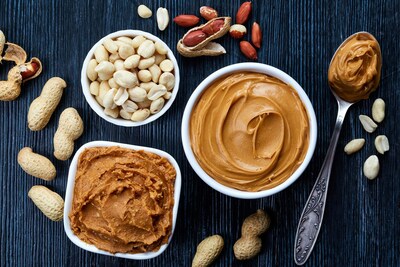
Conclusion:
Growing peanuts is a rewarding journey that connects you with nature and provides a delicious harvest. With these tips, you’re well-equipped to start your peanut-growing adventure. Happy planting!
People also ask:
How long does it take for peanuts to grow?
Peanuts typically take 110-130 days from planting to harvest, depending on the variety and growing conditions.
Do peanuts need full sun?
Peanuts thrive in full sun, requiring at least 6-8 hours of direct sunlight daily for optimal growth.
How often should I water my peanut plants?
Water your peanut plants 1-2 inches per week, adjusting based on rainfall and soil moisture levels.
Are peanuts difficult to grow?
While peanuts require attention, they’re not particularly difficult to grow. With proper care and patience, even beginners can successfully cultivate peanuts.
How many peanuts does one plant produce?
A healthy peanut plant can produce 25-50 peanuts, depending on the variety and growing conditions.
Can I grow peanuts year-round?
Peanuts are warm-season crops. In most regions, they’re grown as annual plants during the spring and summer months.
How do I know when my peanuts are ready to harvest?
Look for yellowing leaves and check the pods. If the inside of the pod is dark with visible veins, your peanuts are ready for harvest.
Read also: https://plantgrowup.com/how-to-grow-banana-plant/